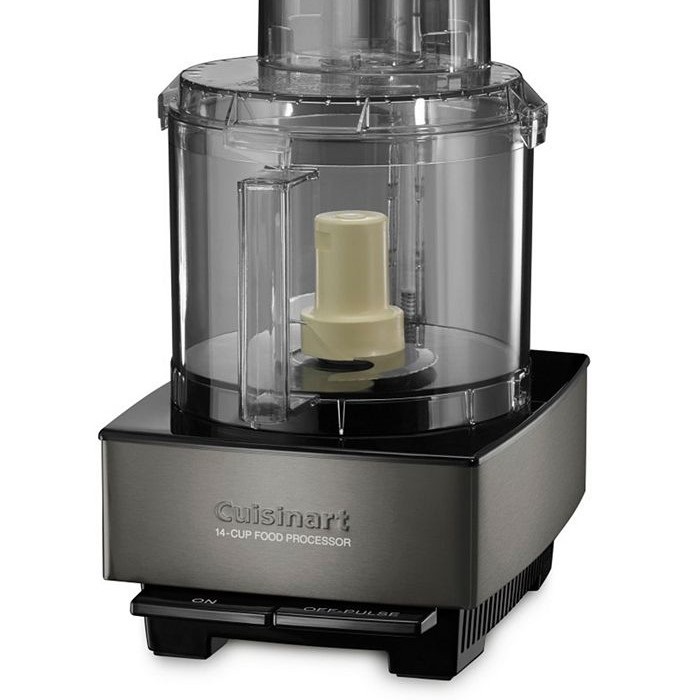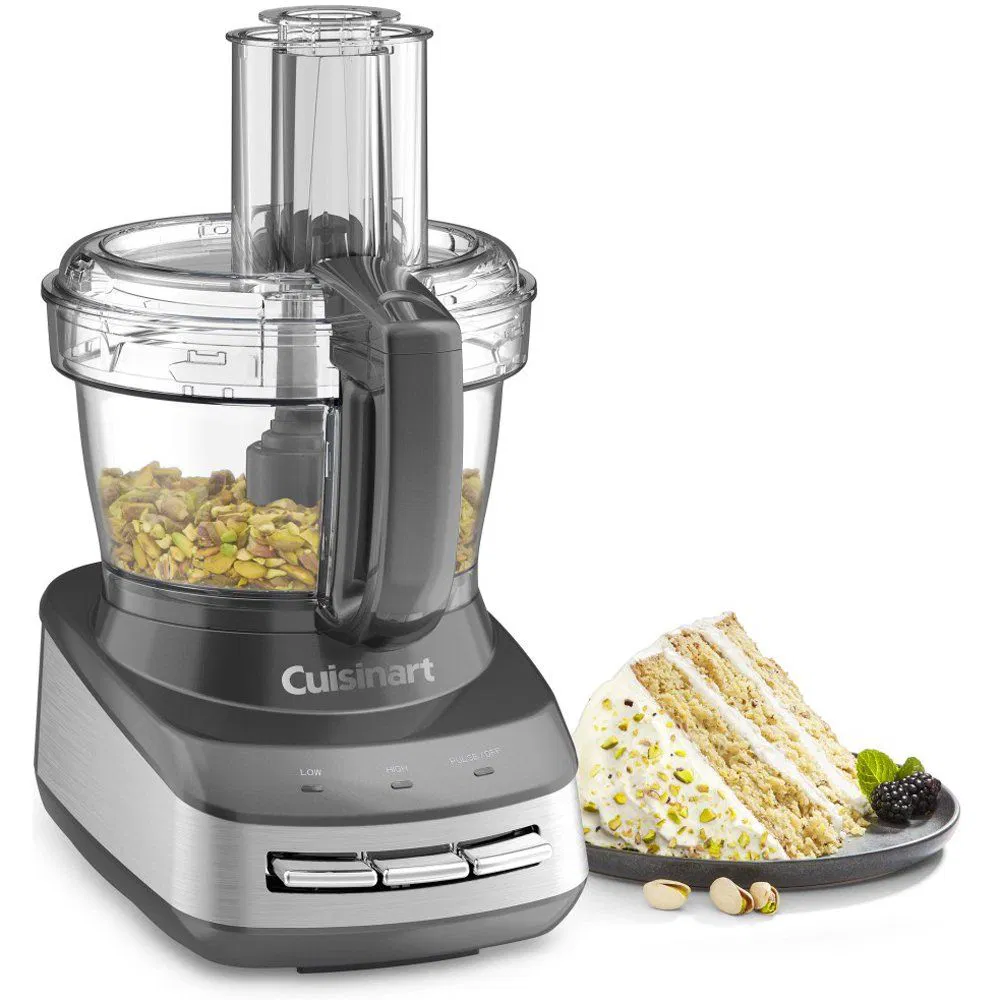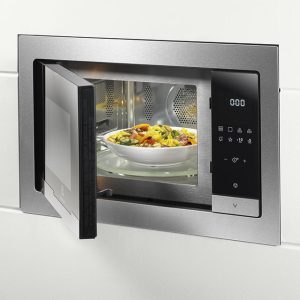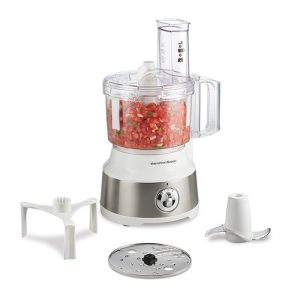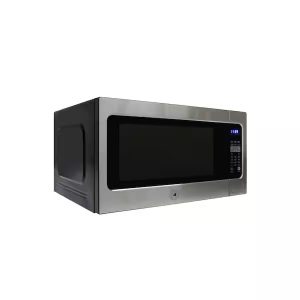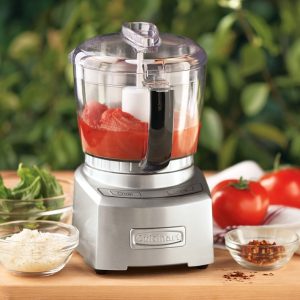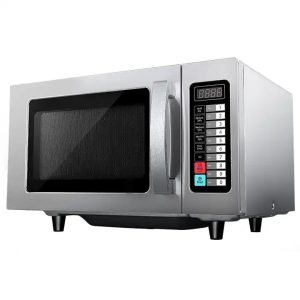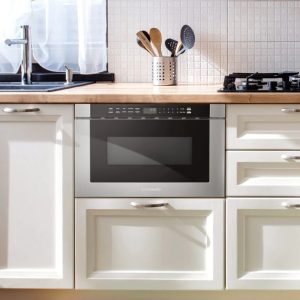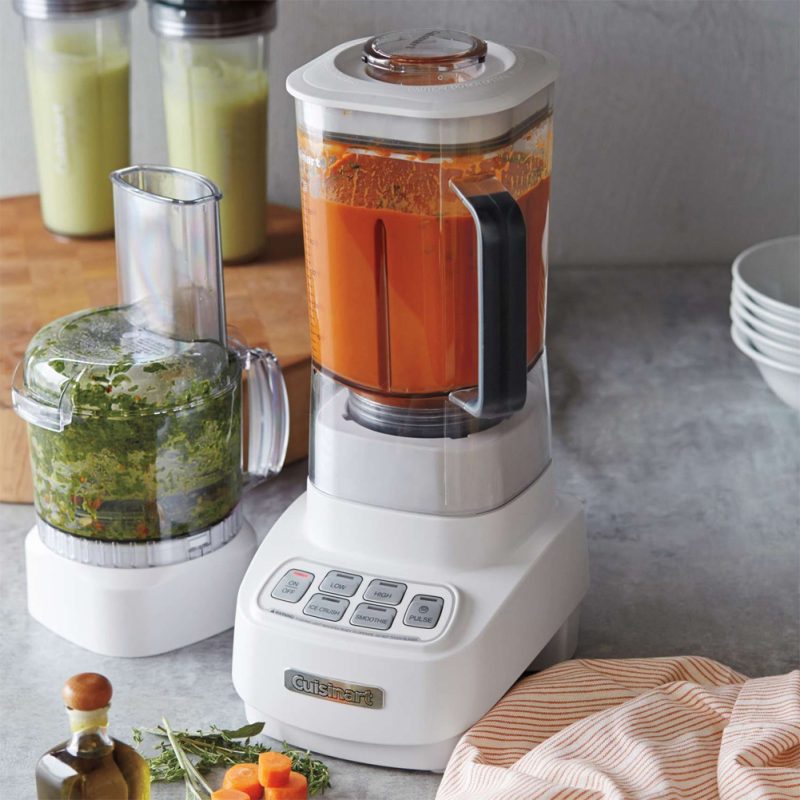
A food processor is an indispensable kitchen appliance that can streamline meal preparation, from chopping vegetables to kneading dough. However, encountering issues such as a lid that refuses to lock can be frustrating and hinder your culinary endeavors. This guide delves into the common reasons why your Cuisinart food processor lid won’t lock, offering practical solutions to get your appliance back in working order swiftly.
Understanding the Importance of a Secure Lid Lock
The lid lock mechanism is crucial for ensuring the safety and efficiency of your food processor. Not only does it prevent accidental spills, but it also ensures that the appliance operates correctly, maintaining the proper speed and consistency during food preparation. When the lid fails to lock, it can stop the machine from functioning altogether, leaving you unable to use the food processor as intended.
The Safety Mechanism Explained
The safety mechanism in a Cuisinart food processor is designed to prevent the motor from running if the lid is not securely locked in place. This feature protects users from potential injuries and avoids messes in the kitchen. Understanding how this mechanism works can help in diagnosing and fixing the locking issue.
Common Causes of Lid Locking Problems
Several factors can lead to the lid of your Cuisinart food processor not locking properly. Identifying the root cause is the first step toward a solution.
Misalignment of the Lid
One of the most common reasons for the lid not locking is misalignment. If the lid is not positioned correctly on the bowl, the locking mechanism may not engage properly. This misalignment can occur due to improper placement or after cleaning the appliance.
Worn or Damaged Locking Mechanism
Over time, the components of the locking mechanism can wear out or become damaged. Frequent use, accidental impacts, or exposure to moisture can lead to wear and tear, causing the lid to malfunction.
Debris Obstruction
Food particles or debris can accumulate around the locking mechanism, preventing it from functioning correctly. This buildup can interfere with the smooth operation of the lid, making it difficult to lock.
Faulty Locking Button
The locking button is an integral part of the mechanism that engages the lock. If this button becomes defective or stuck, it can prevent the lid from locking.
Step-by-Step Troubleshooting Guide
To resolve the issue of a Cuisinart food processor lid that won’t lock, follow these detailed troubleshooting steps:
1. Inspect the Lid and Bowl
Begin by examining both the lid and the bowl for any visible signs of damage or misalignment.
- Check for Damage: Look for cracks, chips, or warping on the lid and bowl. Damaged parts may need to be replaced.
- Ensure Proper Alignment: Ensure that the lid is seated correctly on the bowl. Remove the lid and reattach it, making sure it sits evenly and securely.
2. Clean the Locking Mechanism
Cleaning is essential to remove any debris that may be obstructing the locking mechanism.
- Remove the Lid: Take off the lid and inspect the locking areas for any leftover food particles or debris.
- Use a Soft Brush: Gently brush away any buildup around the locking points.
- Wipe with a Damp Cloth: Use a damp cloth to clean the locking mechanism thoroughly. Ensure that all parts are free from residue.
3. Examine the Locking Button
The locking button plays a pivotal role in engaging the lid lock.
- Check for Sticking: Press the locking button several times to see if it moves freely. If it feels stuck, try to loosen it gently.
- Assess for Damage: Look for any visible damage to the button. If the button is broken or severely worn, it may need replacement.
4. Test the Alignment Mechanism
The alignment mechanism ensures that the lid sits correctly on the bowl.
- Align Carefully: Place the lid on the bowl, aligning all guiding points meticulously.
- Apply Even Pressure: Press down firmly but evenly to engage the lock. Avoid forcing the lid, as this can cause further misalignment.
5. Check for Motor and Electrical Issues
Sometimes, the problem may stem from the motor or electrical components.
- Reset the Appliance: Unplug the food processor, wait for a minute, and plug it back in. This can reset the system and resolve minor electrical glitches.
- Inspect Wiring: If comfortable, check the internal wiring for any loose connections or visible damage. If unfamiliar with electrical components, seek professional assistance.
Preventive Measures to Avoid Future Locking Issues
Taking proactive steps can help prevent the lid from locking issues in the future.
Regular Cleaning
Maintaining a clean locking mechanism is crucial. After each use, ensure that the lid and bowl are thoroughly cleaned, paying special attention to the locking areas.
Handle with Care
Avoid banging the lid or bowl against hard surfaces. Gentle handling can extend the lifespan of the locking mechanism.
Store Properly
Store the food processor in a dry place to prevent moisture-related damage. Ensure that the lid is slightly open or stored separately to allow air circulation, reducing the risk of mold or residue buildup.
Use Compatible Parts
Always use genuine Cuisinart parts when replacing any components. Using incompatible parts can disrupt the locking mechanism and lead to further issues.
When to Seek Professional Help
If the above troubleshooting steps do not resolve the issue, it might be time to consult a professional.
Warranty Considerations
Check if your food processor is still under warranty. If it is, contact Cuisinart customer service for potential repairs or replacements covered by the warranty.
Professional Repair Services
For those comfortable with appliance repairs, reaching out to a certified technician can ensure that the problem is accurately diagnosed and fixed without causing additional damage.
Replacement Options
If the cost of repair approaches or exceeds the price of a new unit, consider replacing the food processor. Investing in a new model may offer improved features and reliability.
Alternative Solutions and Workarounds
While waiting to fix the locking issue, here are some temporary solutions to continue using your food processor safely.
Manual Locking
If the lock isn’t engaging mechanically, sometimes applying a firm, even pressure while holding the lid can allow the processor to function minimally. However, exercise caution with this method to avoid accidents.
Use a Temporary Cover
For simple tasks that don’t require motor operation, use a separate bowl cover or aluminum foil to cover the bowl securely.
Slow Processing
Operate the food processor at lower speeds to reduce strain on the malfunctioning locking mechanism, minimizing the risk of spills or accidents.
Understanding Cuisinart’s Design and Quality
Cuisinart is renowned for producing high-quality kitchen appliances that are both durable and user-friendly. Their food processors are designed with multiple safety features, including the lid locking mechanism, to enhance the cooking experience.
Engineering Behind the Locking Mechanism
The intricately designed locking mechanism ensures that the lid is securely fastened before the processor can operate. This engineering precision helps prevent common mishaps and ensures consistent performance.
Commitment to Customer Satisfaction
Cuisinart stands by its products, often offering robust customer support and warranties. Understanding the brand’s commitment can provide peace of mind when troubleshooting issues like a lid that won’t lock.
Maintenance Tips to Extend the Lifespan of Your Food Processor
Proper maintenance is key to ensuring your Cuisinart food processor remains efficient and reliable over time.
Regular Inspection
Periodically check all parts, including the lid, bowl, and blades, for signs of wear or damage. Early detection can prevent more significant issues down the line.
Proper Storage
Store your food processor in a manner that protects it from dust, moisture, and physical damage. Use protective covers if necessary.
Lubrication of Moving Parts
Occasionally applying a food-safe lubricant to the locking mechanism can ensure smooth operation. Follow the manufacturer’s guidelines to avoid compromising the appliance’s integrity.
Avoid Overloading
Respect the food processor’s maximum capacity to prevent strain on the motor and locking mechanism. Overloading can lead to premature wear and malfunction.
Frequently Asked Questions About Cuisinart Food Processor Lid Issues
Addressing common queries can further assist in resolving your food processor’s locking problems.
Why Won’t My Cuisinart Food Processor Lid Lock?
Several factors could be at play, including misalignment, debris obstruction, worn components, or electrical issues. Following a systematic troubleshooting approach can help identify the exact cause.
Can I Replace the Locking Mechanism Myself?
If you’re comfortable with appliance repairs and have the necessary tools, you can attempt to replace the locking mechanism. However, for those unsure, seeking professional help is advisable to avoid further damage.
How Do I Prevent the Lid from Not Locking in the Future?
Regular cleaning, careful handling, proper storage, and using compatible parts are essential preventive measures to ensure the lid locks correctly every time.
What Should I Do If My Food Processor Still Won’t Lock After Troubleshooting?
If all troubleshooting steps fail, contacting Cuisinart customer support or consulting a professional technician is recommended. They can provide guidance on repairs or replacements as needed.
 Final Thoughts on Resolving the Cuisinart Food Processor Lid Won’t Lock Issue
Final Thoughts on Resolving the Cuisinart Food Processor Lid Won’t Lock Issue
Encountering a Cuisinart food processor lid that won’t lock can disrupt your kitchen workflow, but with the right approach, most issues can be resolved efficiently. By understanding the underlying causes, performing thorough troubleshooting, and adhering to preventive maintenance practices, you can restore your appliance to optimal functionality. Remember, addressing the problem promptly not only ensures safety but also extends the lifespan of your food processor, allowing you to continue enjoying its benefits without interruption.
